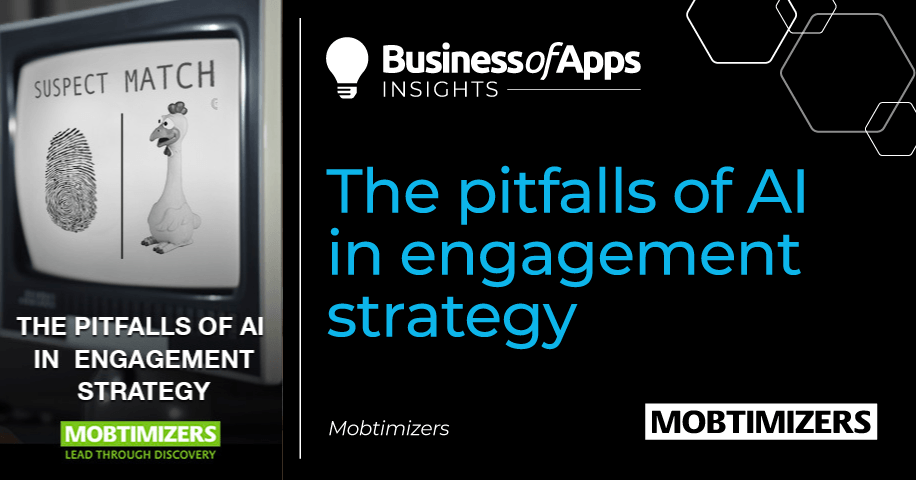App Store Optimization (ASO) and user engagement strategy play pivotal roles in maximizing the success of mobile apps. Developers and businesses need to ensure their apps are discoverable, appealing, and capable of capturing and retaining users’ attention. This is where ASO and effective user engagement strategies come into play.
ASO involves optimizing various elements of an app listing, such as app title, keywords, description, and screenshots, to improve its visibility and ranking within app stores. By implementing ASO techniques, developers can increase their app’s chances of appearing in relevant search results and attracting organic downloads.
However, app success extends beyond acquisition or downloads, and user engagement strategy plays a critical role in this aspect. It encompasses the tactics and approaches used to interact, communicate, and build relationships with app users. Engaging users effectively leads to higher retention rates, increased app usage, positive reviews, and word-of-mouth recommendations, ultimately driving app growth and long-term success.
A well-crafted user engagement strategy goes hand in hand with ASO, as it ensures that once users discover and install an app, they remain actively engaged and satisfied. This includes personalized experiences, timely notifications, relevant content, and responsive customer support, among other factors that contribute to a positive user experience.
Increasing the use of AI in engagement
The increasing adoption of AI in ASO and user engagement strategy signals a paradigm shift in how apps are optimized and how users are engaged. By harnessing the power of AI, developers and businesses can unlock new possibilities, enhance their app’s visibility, and build strong, lasting relationships with their user base.
It is now possible to use AI in many ways to help developers engage with app users. Developers can create highly personalized and interactive experiences that not only enhance user engagement but also build loyalty and satisfaction. The power of AI lies in its ability to quickly analyze user data, understand user preferences, and provide relevant and timely interactions, ultimately creating a compelling user experience that fosters long-term engagement with the app.
Developers have integrated AI-powered chatbots and virtual assistants within apps that enable them to offer instant and responsive support to users. Chatbots can assist users with common inquiries, guide them through app features, offer troubleshooting assistance, or even facilitate transactions.
Pitfalls of AI in user engagement
Most of us can easily tell when we are chatting with a bot. It just doesn’t feel authentic. And while the chatbots can certainly help us with basic tasks, it can be frustrating to get through these gatekeepers before solving possibly more complex requests.
Engagement should feel like a personalized experience between app users and developers. Relying solely on AI may take away from users feeling personally seen or heard. AI algorithms may struggle to fully grasp the contextual nuances of user interactions, leading to misinterpretations or inappropriate responses. This can result in ineffective engagement strategies that fail to resonate with users.
Download the Mobile Game & App Marketing Report to Stay Ahead
SocialPeta’s report, created with top industry experts, helps you understand the 2024 mobile landscape and discover growth opportunities for 2025 and beyond.
Download nowAdditionally, overreliance on AI can lead to generic or repetitive interactions that fail to engage users effectively. Users may feel that their experiences lack the human touch, reducing the likelihood of building genuine connections and long-term brand loyalty. AI algorithms still often lack emotional intelligence and empathy, which are crucial aspects of human engagement.
Specific industry examples
In the fintech industry, if a user encounters financial difficulties or experiences fraudulent transactions, AI-driven communication may lack the necessary empathy and understanding to address their emotional concerns effectively.
Similarly, in the insurance sector, when policyholders file claims due to significant losses, AI-driven communication might fail to provide the needed human touch and empathy, leaving customers frustrated and unheard.
To mitigate these pitfalls, it’s crucial to complement AI-driven communication with human expertise and emotional understanding to build trust and enhance customer satisfaction.
AI within app store page communication
AI algorithms can face challenges in grasping the contextual nuances of user interactions, leading to a limited understanding of specific concerns. For instance, in a fintech app’s app store communication, AI may struggle to interpret financial transaction-related inquiries accurately, potentially resulting in misunderstandings or misaligned messaging that affects user trust.
Similarly, in an insurance app’s app store strategy, AI algorithms may find it difficult to comprehend the intricacies of specific insurance policies, leading to incomplete or unclear responses that hinder users’ decision-making process.
Additionally, in a gaming app’s app store communication, AI may struggle to interpret user queries about gameplay or in-app purchases, potentially providing generic or irrelevant responses that impact user perception and discourage engagement.
On both iOS and GP, businesses can create a more nuanced app store experience through custom product pages (iOS) and custom store listings (GP). Leveraging AI for targeting, while considering the human touch and contextual understanding of the target audience, ensures that businesses will see great results in engaging users and driving app success.
Continuing the human involvement with AI
We must recognize these current AI limitations, and supplement AI-driven communication with human expertise to ensure accurate, personalized, and contextually relevant messaging on the app store page.
Without human intervention, AI algorithms may not anticipate certain user behaviors or emotional responses, potentially leading to misunderstandings, frustration, or disengagement. Overreliance on AI can lead to formulaic or repetitive interactions that fail to engage users effectively. Furthermore, a lack of transparency from developers in how AI algorithms make decisions and handle user data can erode trust, hindering engagement efforts.
Conclusion
In an era where millions of apps vie for attention, mastering ASO and implementing a robust user engagement strategy are imperative for developers and businesses. By optimizing app store visibility and engaging users in a meaningful way, they can significantly enhance their app’s chances of success, secure loyal users, and achieve their business goals.
Mobtimizers is actively working towards balancing AI in ASO strategy and user engagement by combining the power of AI algorithms with human expertise. Our approach recognizes the limitations of relying solely on AI and emphasizes the need for personalized experiences and genuine connections with app users. We are dedicated to helping businesses find the right balance by providing insights, guidance, and tailored strategies that optimize app performance while ensuring human touchpoints for meaningful user engagement. You can read more about how Mobtimizers mitigates the use of AI in ASO and engagement here.












